URBAN CARNIVAL: In the Pursuit of Urban Happiness
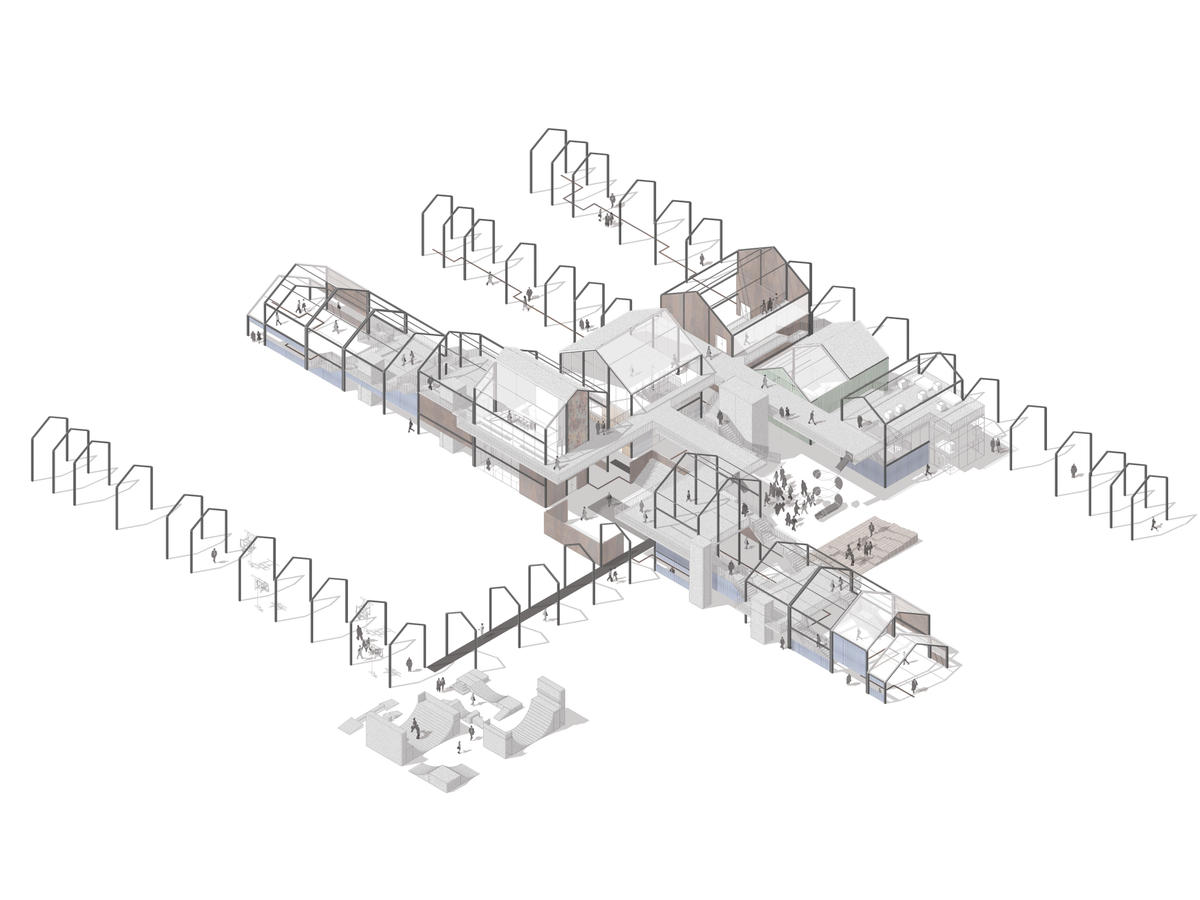
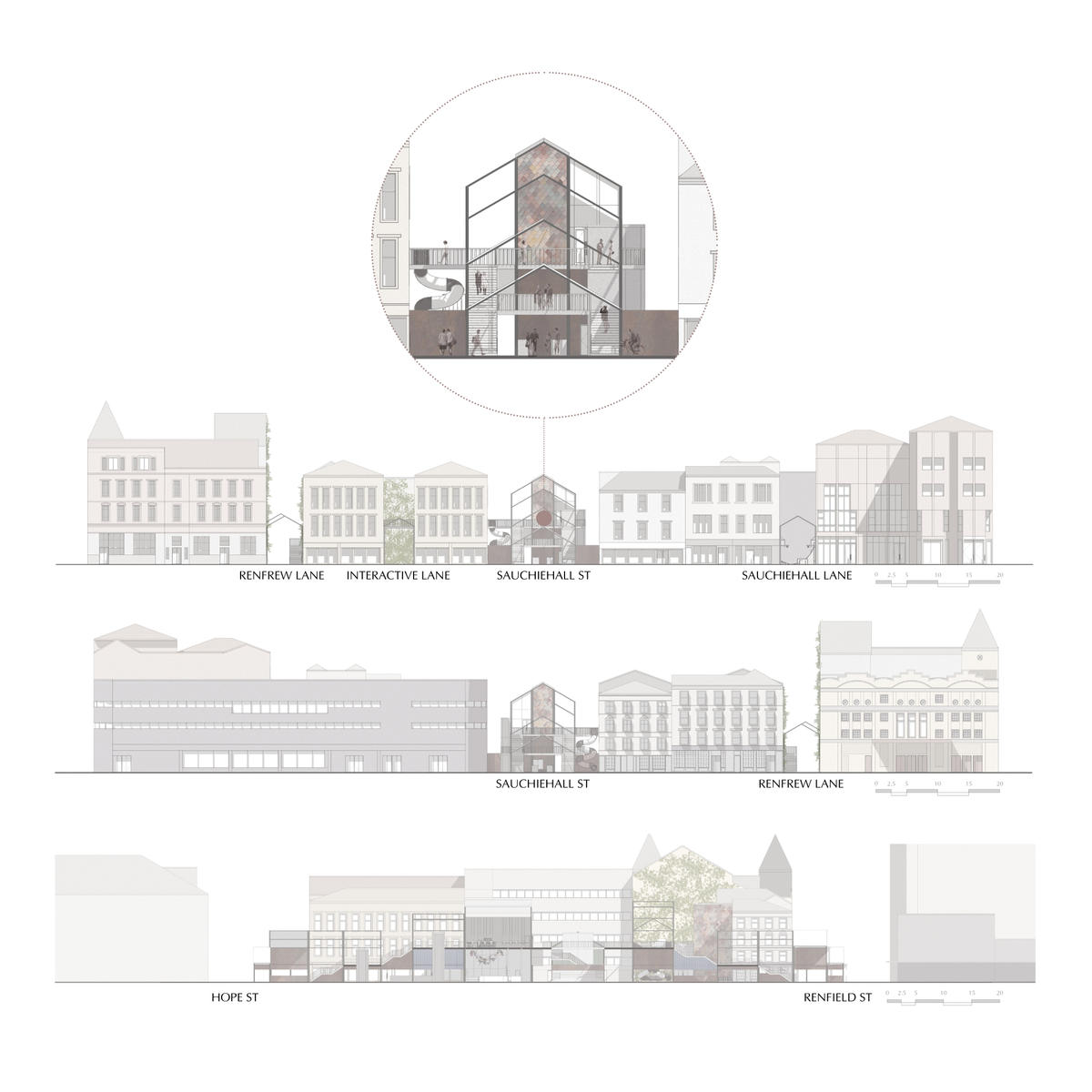
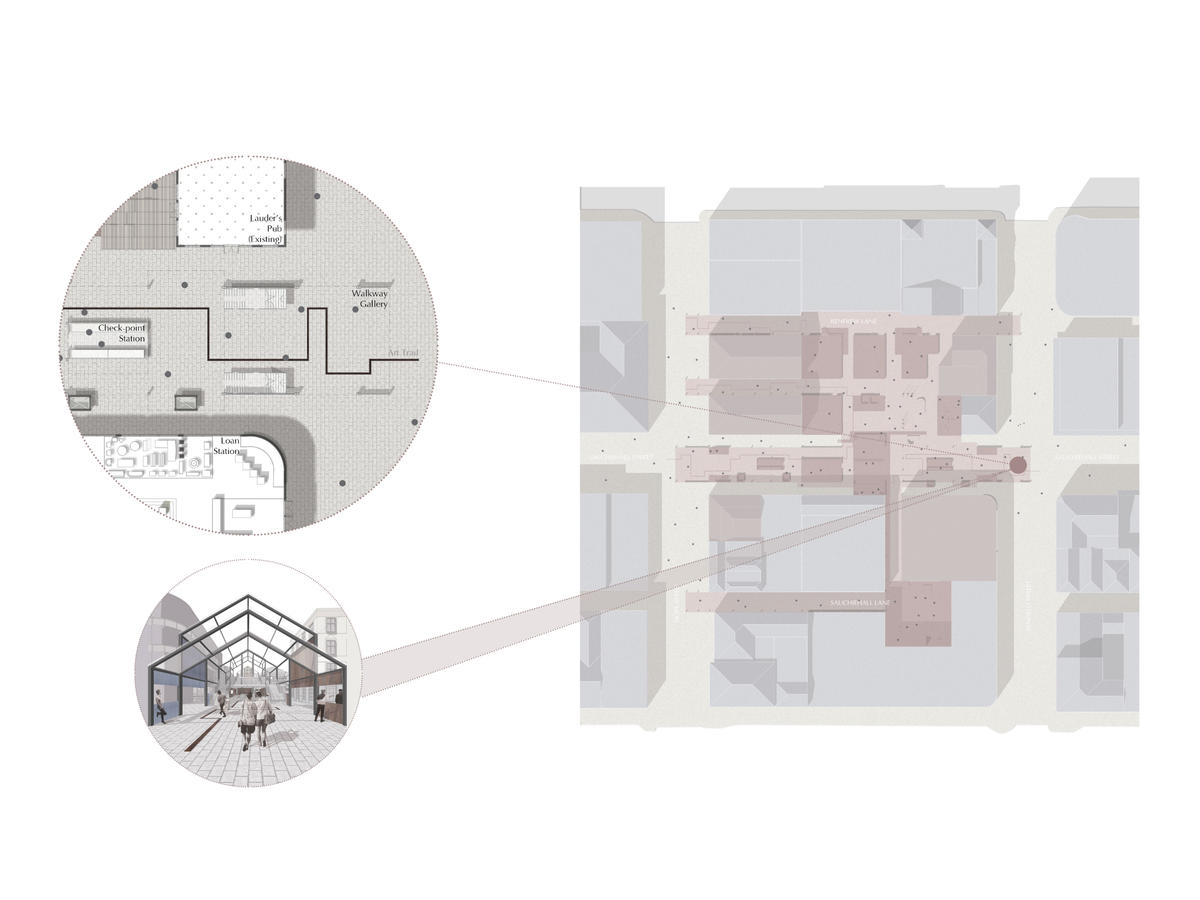
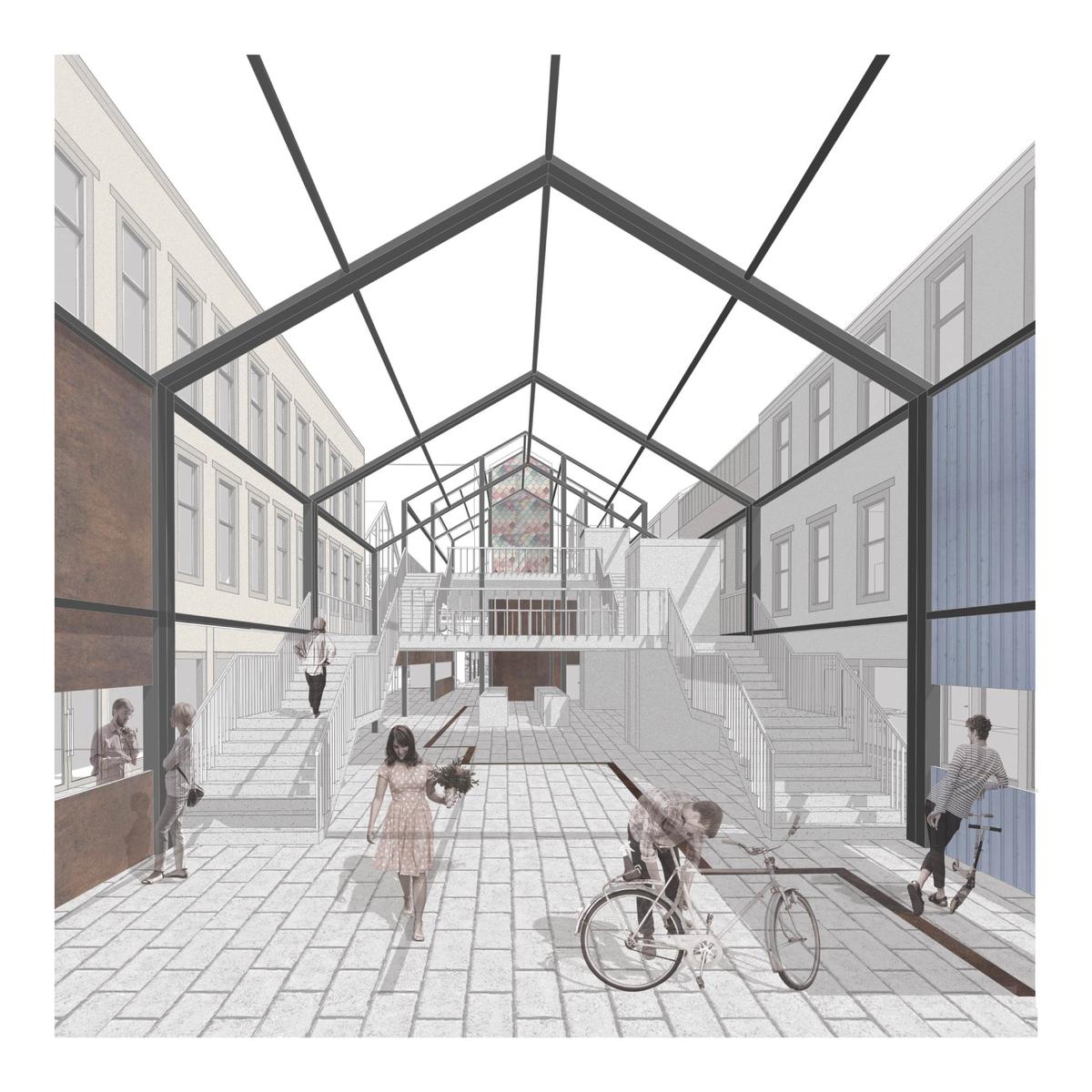
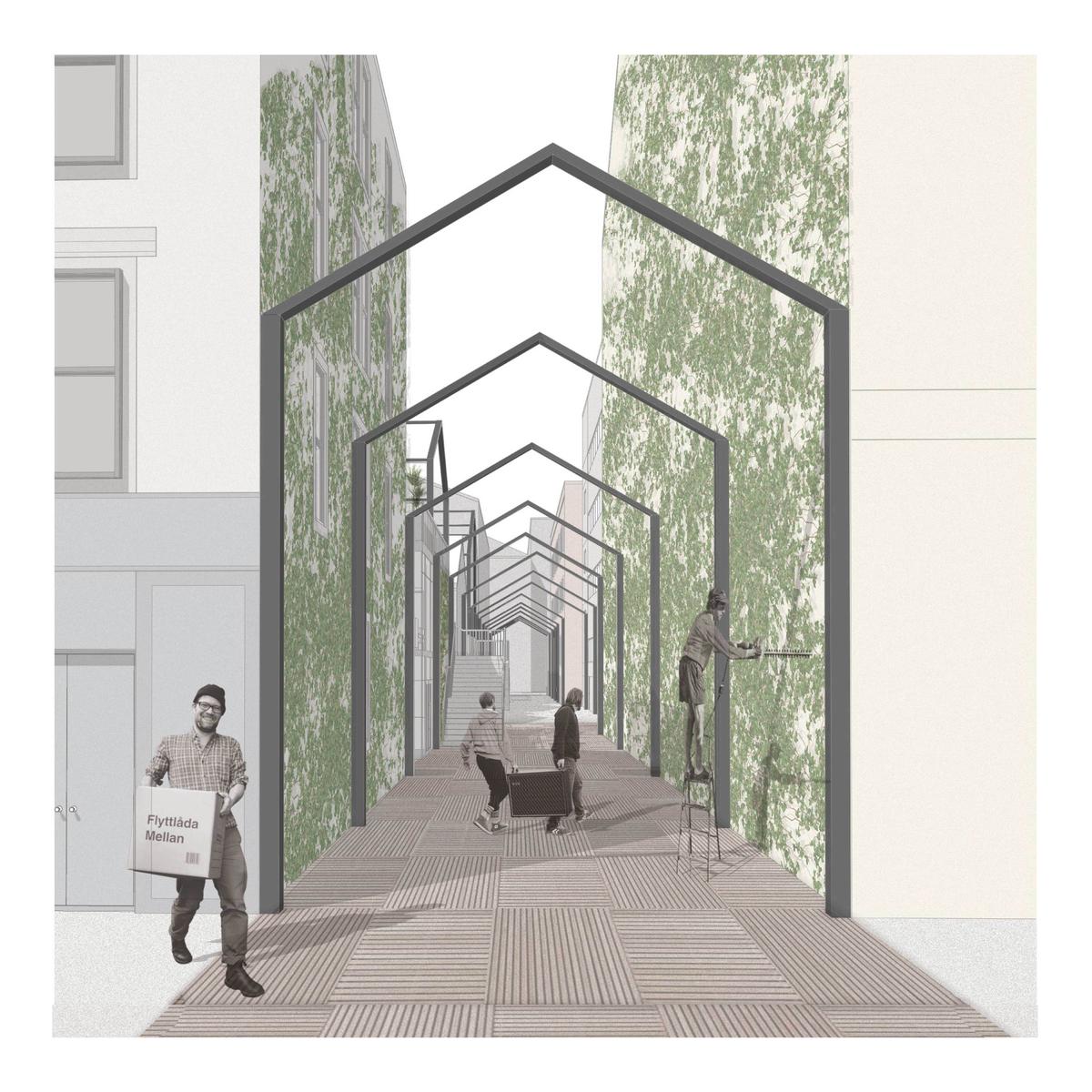
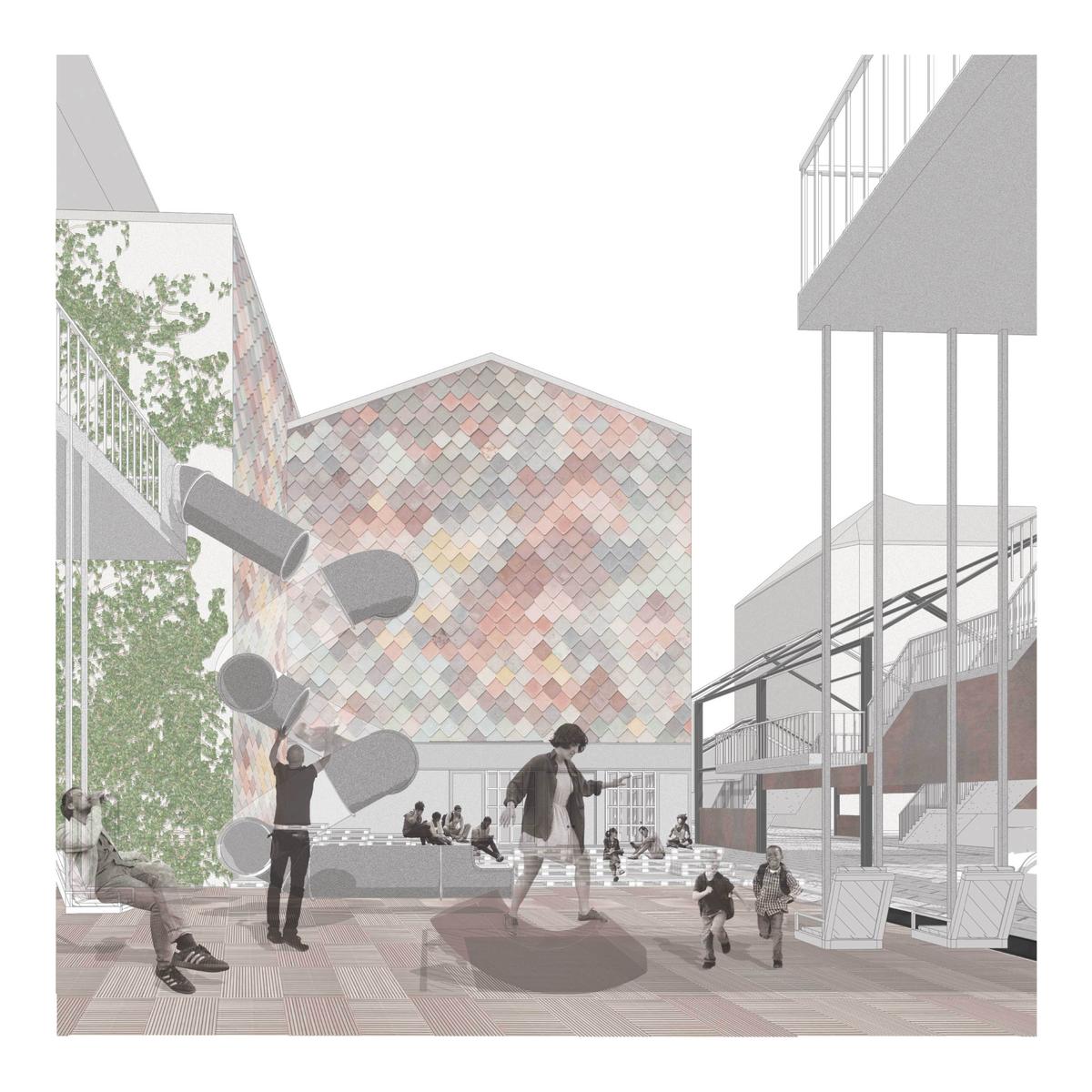
Isometric view of the Urban Carnival scheme in isolation.
A provocation to reinstate the city dwellers’ control over the public spaces, through the implementation of an urban scheme focused on enhancing the locals’ sense of belonging and group identity.
School/Level
Category
Year
The presence of life in the city is a complex matter, in which the city dwellers interact on various levels with the built space and with each other on a daily basis. Public interactions define our position in the social world and the built space unconsciously influences our thoughts and actions. Also, our society is facing a voluntary withdrawal from the social space and human life in the urban scene is captured in the light of alienation and loneliness, as the city gets denser.
Based on a time-banking concept, where communities exchange their time for small services to patch-up the social cohesion, my 5th-year Thesis tackles the issue at a city-level and signals a provocation to reinstate the city dwellers’ control over the public spaces. Exchanging your time for public activities on the reinvented pedestrian street, would break the social segregation and turn the urban chaos into an urban carnival through a playful citywide loyalty scheme programme. Urban Carnival is a public space where the time spent within the community for social experiences is the new currency. The new mentality revolves around the ability of an extremely diverse urban community to host social, intellectual, entertainment and consumption activities, for which they will be rewarded “Glasgow Loyalty Points” to further spend within the scheme on more social experiences. Urban Carnival hosts a variety of interaction spaces (or “stations”) to suit most of the social needs of an urban dweller, connected by paths (or “trails”), which correspond to various areas of interest. The Urban Carnival would be a place for the people and entirely orchestrated by the people of Glasgow.
Collaborators: Tutors: Neil McGuire and Hazel Wallace